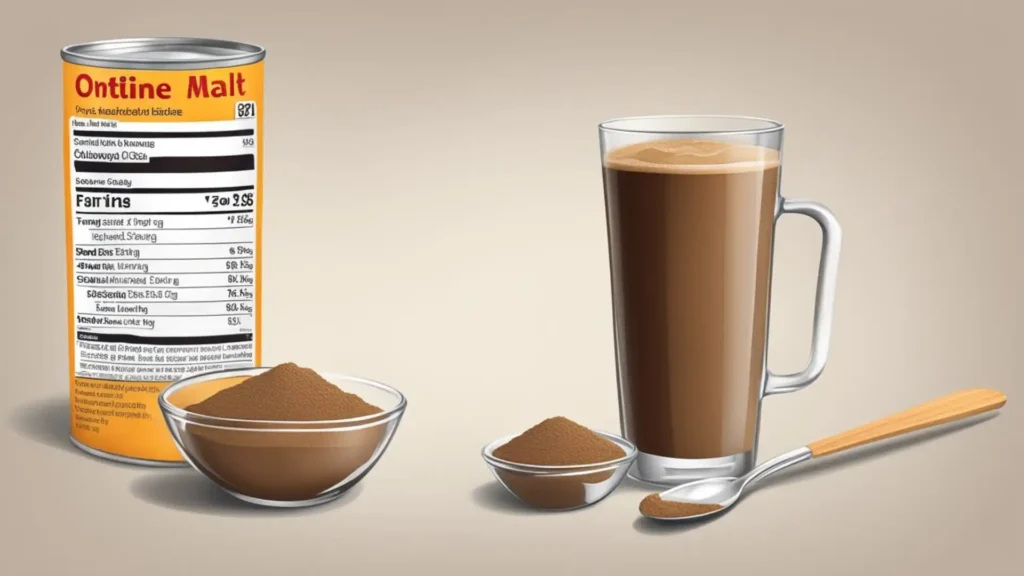Ovaltine is often considered one of the most nostalgic drinks, reminding many of childhood comfort. Many of us enjoyed this creamy, malt drink as kids—either warm before bedtime or cold on a hot summer day.As adults, the question arises: Is Ovaltine truly a healthy option?Ovaltine
In this article, we’ll explore Ovaltine—what’s in it, how nutritious it is, and whether it belongs in your daily diet. From its origins as a health drink to its modern-day appeal, we’ll explore everything you need to know.
The Nutritional Breakdown of Ovaltine
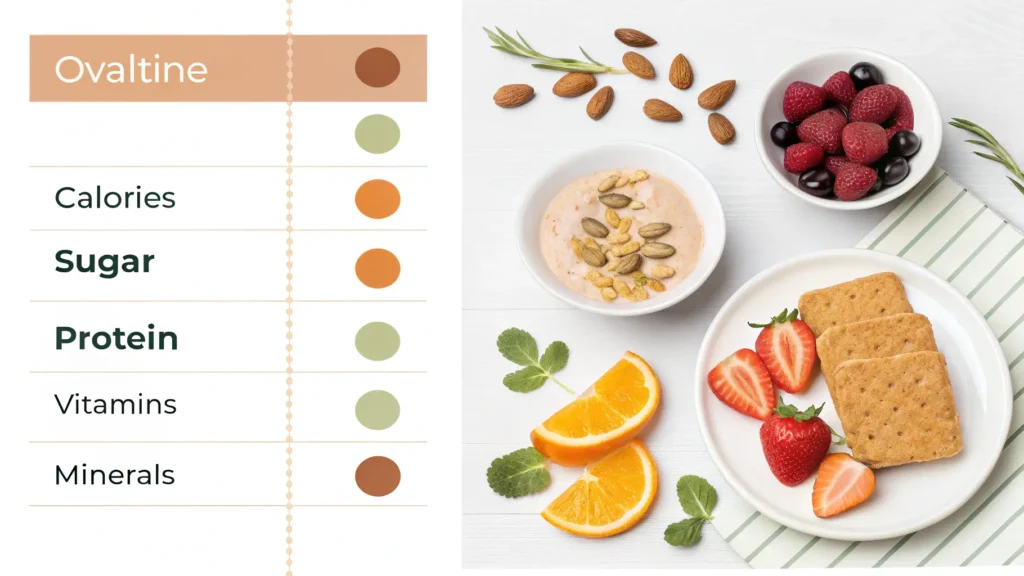
What’s Inside Your Cup?
To determine if Ovaltine is a healthy option, it’s essential to start with the basics—what’s in it? Ovaltine mainly contains malt extract, sugar, whey, and added vitamins and minerals. At first glance, the formula appears straightforward. A closer examination of the ingredients provides more insight.
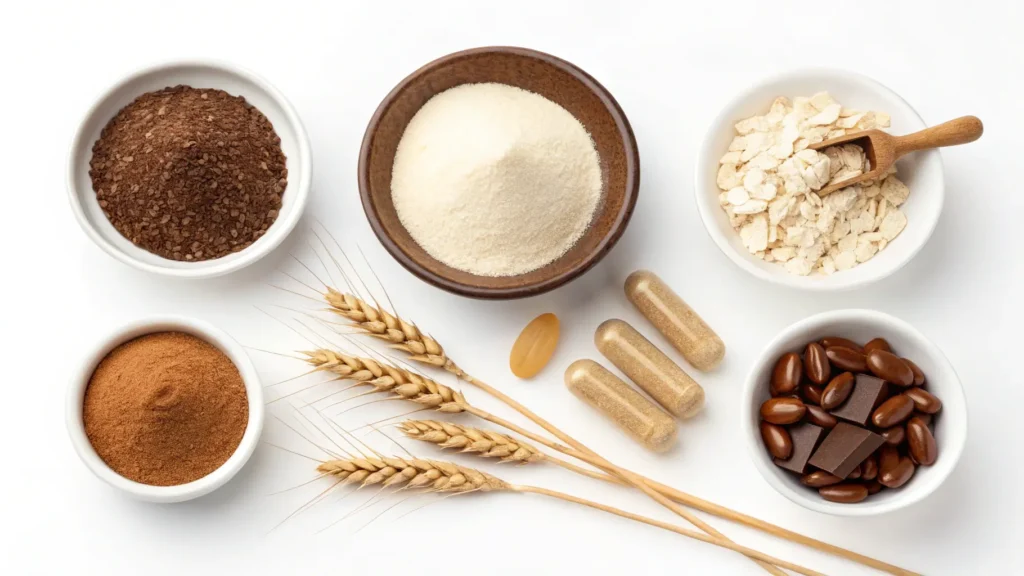
- Malt Extract: This is the backbone of the beverage, giving it that rich, toasty flavor. Malt extract comes from barley and provides key nutrients like fiber and B vitamins.
- Sugar: This is one area where concerns may arise. Although Ovaltine contains less sugar than some other flavored drinks, its sugar content remains noteworthy. Depending on the version, sugar content can vary, but it’s typically around 9 grams per serving.
- Whey: A milk-derived protein, whey contains all essential amino acids.t is a complete protein that provides all the essential amino acids the body requires.
- Vitamins and Minerals: The drink is fortified with a range of vitamins and minerals, including vitamins A, C, D, B vitamins, and iron. These added nutrients are a key reason Ovaltine has long been promoted as a health drink.
The Pros and Cons of Its Ingredients
Here is a balanced look at the benefits and drawbacks of Ovaltine’s ingredients.
Pros:
- Nutrient-Dense: It’s packed with essential vitamins and minerals, which can help fill nutritional gaps, especially for kids or adults with dietary restrictions.
- Low in Fat: Compared to other flavored drinks, it’s relatively low in fat, making it a lighter option for those watching their fat intake.
- Source of Protein: Thanks to the whey, it provides a small but significant amount of protein, supporting muscle repair and growth.
Cons:
- High in Sugar: While it’s not the worst offender, the sugar content in this drink is worth noting, especially for those monitoring their sugar intake.
- Contains Artificial Ingredients: Some versions contain artificial flavors and colors, which might not sit well with health-conscious consumers.
Ovaltine in Your Daily Diet: A Good Choice?
The Role of Ovaltine in a Balanced Diet
So, is this malt drink a healthy addition to your daily diet? The answer is nuanced and depends on individual dietary needs and goals.
Ovaltine can be part of a balanced diet, but moderation is important. Consuming it several times a day is not advised. However, as a once-in-a-while treat or a quick source of nutrients, this drink can be beneficial.
- For Children: It can help picky eaters get more vitamins and minerals. These kids often avoid vegetables and other healthy foods.
- For Adults: If you’re someone who struggles with getting enough iron or B vitamins, this beverage could help boost your intake. In addition, its familiar flavor may offer a sense of comfort and relaxation.
Who Should Avoid Ovaltine?
Although Ovaltine offers some benefits, it may not be suitable for everyone.Here are a few groups of people who might want to think twice before making this drink a regular part of their diet:
- People with Diabetes: Given its sugar content, this drink may cause blood sugar spikes, making it a less-than-ideal choice for those managing diabetes.
- Lactose Intolerant Individuals: Since it contains whey, those with lactose intolerance may experience digestive discomfort after consuming it.
- Those Watching Their Weight: Eating too much sugar and calories can lead to weight gain. It’s important to enjoy them in moderation.
Comparing Ovaltine to Other Popular Drinks
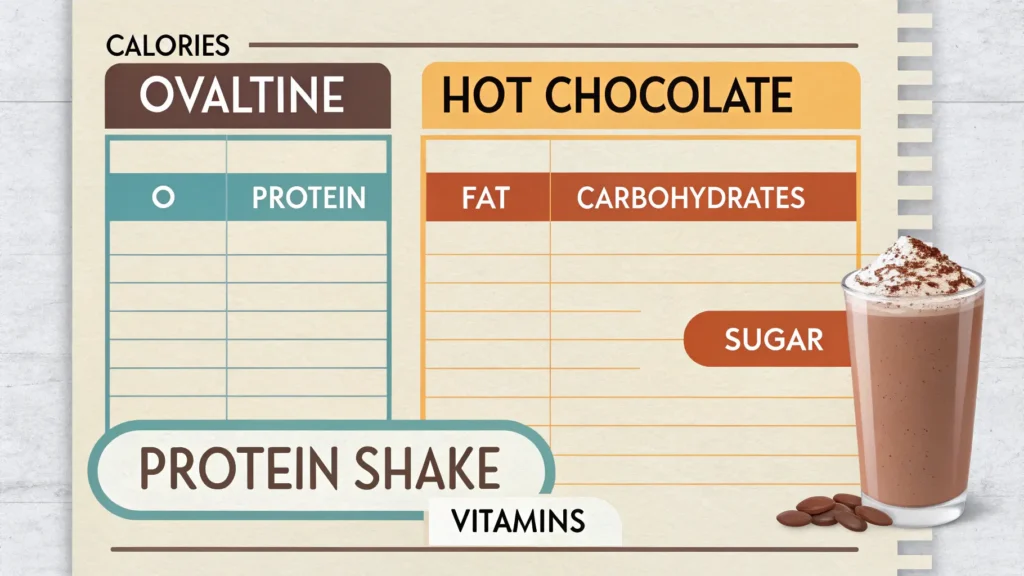
Ovaltine vs. Hot Chocolate
When comparing this drink to hot chocolate, there are a few key differences to note.
- Nutritional Content: It generally contains more vitamins and minerals than traditional hot chocolate. While hot chocolate is often just a sugary treat, this drink offers some nutritional benefits.
- Sugar Levels: Hot chocolate typically has higher sugar content, especially if made from a pre-mixed packet.
- Taste and Versatility: Both drinks taste good, but Ovaltine has a richer flavor. It can be enjoyed hot or cold, giving you more options.
Ovaltine vs. Protein Shakes
Protein shakes are often used by athletes and those looking to build muscle.How does Ovaltine compare to similar beverages?
- Protein Content: Protein shakes usually contain more protein than this drink. If your goal is muscle growth, a dedicated protein shake might be a better choice.
- Added Nutrients: This malted drink stands out because it has more vitamins and minerals than regular protein shakes.
- Calorie Content: Protein shakes can have a lot of calories, depending on the brand. If you are watching your calorie intake, this drink might be a lighter choice.
FAQs about Ovaltine
1. Can Ovaltine be considered a health drink?
It is often classified as a health drink because of its added vitamins and minerals. However, its sugar content means it should be consumed in moderation.
2. Is the drink suitable for people with lactose intolerance?
This drink contains whey, which is derived from milk, so it may not be suitable for those with lactose intolerance. However, lactose-free versions are available in some markets.
3. How does Ovaltine compare to other nutritional drinks?
Compared to many other flavored drinks, Ovaltine is relatively low in fat and rich in essential vitamins and minerals. However, it’s not as high in protein as dedicated protein shakes.
4. Is Ovaltine safe for children?
Yes, it is generally safe for children and can be a good source of nutrients. However, parents should monitor sugar intake and ensure it fits within a balanced diet.
5. Can Ovaltine help with iron deficiency?
This beverage is fortified with iron, so it can be a helpful supplement for those with iron deficiency, especially when combined with other iron-rich foods.
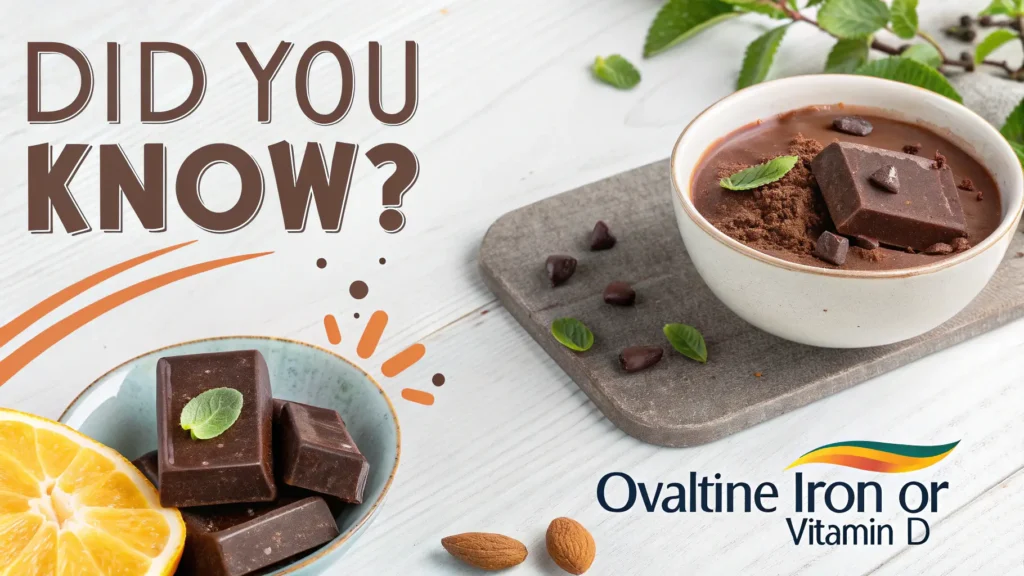
Conclusion
This raises an important consideration: Is Ovaltine a nutritious addition to one’s diet? The answer lies in how you incorporate it into your diet. Its rich array of vitamins and minerals can certainly be a part of a balanced diet. However, its sugar content means it’s best enjoyed in moderation.
Whether you’re a lifelong fan of the malted drink or a newcomer curious about its health benefits, this drink offers a comforting and nutrient-packed option when consumed mindfully.
Key Takeaway: Ovaltine can be a healthy choice when consumed in moderation, offering a good source of essential vitamins and minerals, but be mindful of its sugar content.
Discover more trends:
Follow us on: 📌 Pinterest | 📘 Facebook

